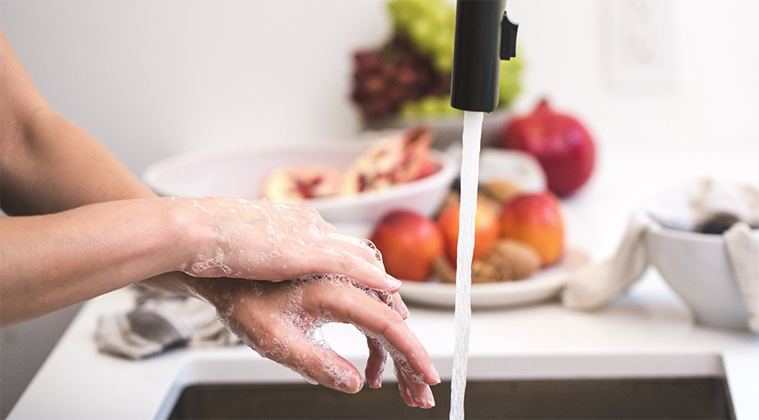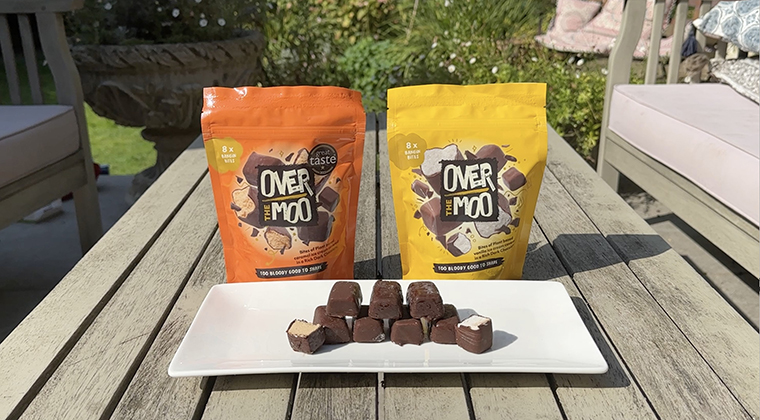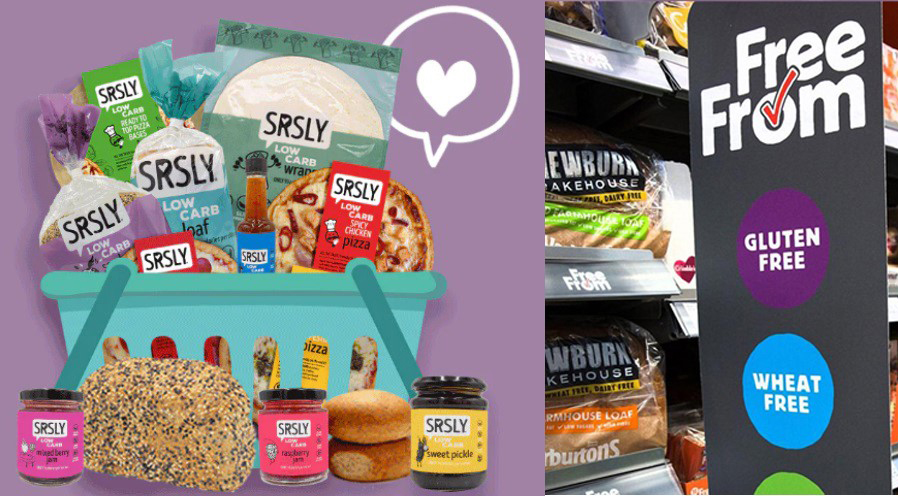Words by David Brassey, Nutritional Therapist
We’re currently living through unprecedented times and the coronavirus pandemic has really put a spotlight on the importance of maintaining a healthy immune system.
I know it’s been a difficult few weeks as the country remains in quarantine – but staying inside gives us a great opportunity to protect the NHS and for us to fight Covid-19 by improving our health, first and foremost, at home.
The term “immune system” is banded around a lot by health professionals, but it simply refers to the complex network of cells, blood, bone marrow, tissues and organs in your body that work together to fight bacteria and viruses.
Your immune system is your first line of defence against infectious diseases, though you’ll often hear people say that they simply have a good or a bad immune system.
And whilst it’s true that some people do seem to have better immunity than others, the good news is there are lots of things you can do to boost your immune system in quick and effective ways.
Make sure you stick to a healthy balanced diet
Never under-estimate the importance of a healthy, balanced diet when it comes to giving you the vital vitamins and nutrients that your body needs for better immunity through food.
It can be tempting, especially whilst we’re all staying indoors during quarantine, to stop cooking healthy food and to binge on takeaways and unhealthy snacks.
We’ve all been there – but now more than ever you should be placing an emphasis on healthy eating to make sure you’re fuelling your body to fight infection and to feel its best.
Zinc deficiency is extremely common around the world. Around 1.1 billion people are reported to be zinc deficient, largely due to poor diets.
Yet zinc is one nutrient that plays an important role in your immune system’s ability to ward off viral infections and it may play a vastly underrated role in the COVID-19 pandemic.
Zinc is vital for healthy immune function and a combination of zinc with a zinc ionophore (the molecule that transports zinc) was in 2010 shown to block viral replication of severe acute respiratory syndrome-related coronavirus in cell culture within minutes.
Other vitamins that work to boost your immunity are vitamins C, B6 and E. Vitamin C is well known for its immunity-boosting properties. Foods that are rich in vitamin C include oranges, peppers, strawberries and broccoli – to name but a few common fruits and vegetables.
Vitamin B6 supports biochemical reactions in the body and can be found in protein-rich foods such as chicken, salmon, tuna and chickpeas.
And vitamin E is an antioxidant – antioxidants work to protect cells against something called free radicals. Free radicals are unstable atoms that damage cells and can cause illness and ageing and are often linked to heart disease and cancer.
Foods that are rich in vitamin E are spinach, nuts, seeds, avocados and red peppers.
Sometimes it’s hard to get exactly the right amount of these immune-boosting vitamins through food alone depending on availability and the types of meals you regularly cook for yourself or your family.
If you find that you’re struggling, taking a vitamin supplement of any of the vitamins above every day can help instrumentally.
Get plenty of good quality sleep
You know those nights where you wake up after a long, deep sleep feeling refreshed and ready to start the day?
Well sadly, those can seem few and far between for most people – myself included! However, getting plenty of good quality sleep is one of the key ways in which you can boost your immune system and improve your overall health and wellbeing.
Sleep is the body’s time to repair and it’s when your body produces key immune cells. Yet all too often the daily stresses of life, coupled with too much time spent on our phones, a high caffeine consumption during the day or even a lack of a proper bedtime routine can all have a negative impact on your quality of sleep.
This study published in Behavioural Sleep Medicine even found that healthy young adults with insomnia were more susceptible to the flu even after having a flu jab compared to healthy young adults with no sleep problems.
The best investment you can make for yourself during this period of quarantine is to prioritise your sleep quality – not quantity.
If you have time off work, it can be tempting to go to sleep in the early hours and wake up at a different time than you usually would for work.
By all means adjust your sleep cycle to allow for a later wake-up time, but make sure that you are going to sleep and waking up at the same time every day to regulate your body’s internal clock.
If you struggle with getting a good night’s sleep, magnesium could be the answer. Known as “nature’s finest relaxant” it is clinically proven to have a calming effect on the entire body.
Make time for regular exercise
Despite the fact that gyms across the country have closed down due to the coronavirus pandemic, there is still ample opportunity to stay active even throughout the national quarantine.
A 2018 review by Frontiers in Immunology found that regular exercise not only decreases your chances of getting chronic diseases, but it also decreases your chances of catching bacterial and viral infections too.
Not only that but exercise releases feel-good endorphins that can improve depression, anxiety and overall stress.
When the body is stressed, it goes into fight-or-flight mode. When we were neanderthals, this response helped us to survive in life or death situations. But in the modern world, it’s still a response that’s emitted when we’re in stressful situations.
The body uses the hormone cortisol to regulate this stress but what happens is it prevents the immune system from operating until the stressful situation is over to give the body time to react to the original stressor.
However, when we’re in a constant state of stress this means that cortisol levels are always high. Your immune system is therefore constantly being repressed – which is why during times of high stress, more often than not you’ll find yourself getting ill.
The overarching theme here is to really look after yourself during these difficult times.
Coronavirus is undoubtedly having a profound effect on the world around us and now is the time to really prioritise your health and the health of your family.
But by following the steps recommended and sticking to the Government’s guidance, be comforted by the knowledge that you’re doing everything you can to reduce your risk around Covid-19.
Words by David Brassey, Nutritional Therapist who holds a Post-Graduate Diploma in Nutritional Therapy and regularly attends seminars all over the globe to keep up to speed with the latest developments in the field of nutrition and wellbeing.
When he initially started in practice, he had difficulty sourcing nutritional supplements for his patients that had optimal levels of the very highest quality active ingredients.
This lead him to create his two businesses – Amrita Nutrition, which provides supplements to practitioners around the world, and Supplement Hub, its consumer arm which provides supplements to the general public to improve their health and wellbeing.








